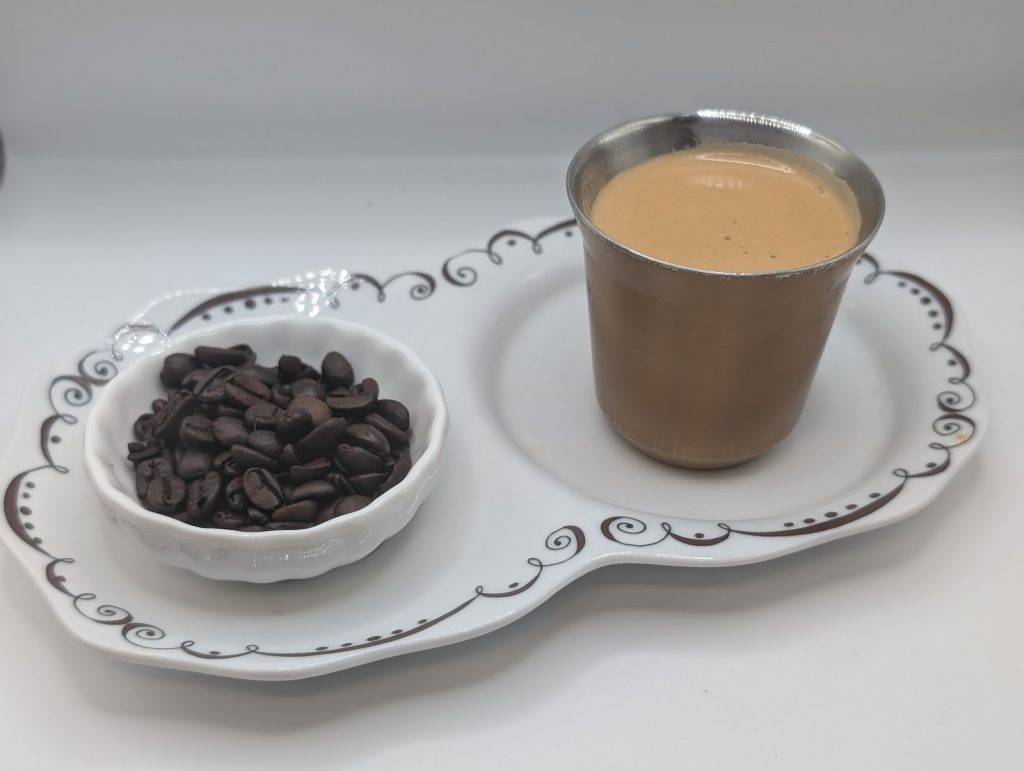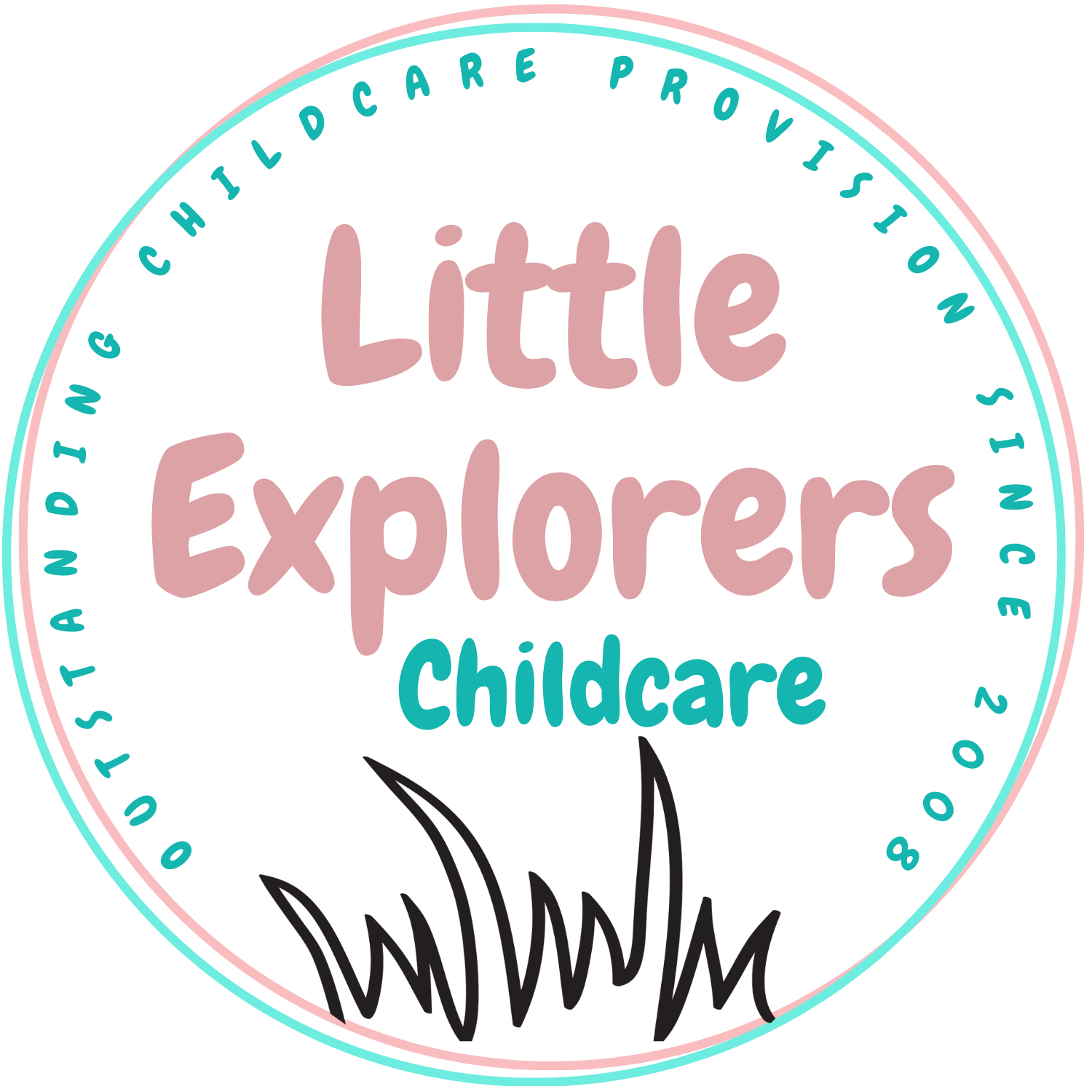- October 30, 2025
- Joanne Hall (Staff)
- 1
At Little Explorers, our curriculum grows from genuine curiosity and meaningful, real-world experiences. Rather than creating activities that simply look impressive, we focus on what makes a real difference for our Little Explorers learning. This week’s exploration of coffee was a perfect example of how responsive teaching can connect backwards to earlier learning and forwards into new discoveries, all within our long-term theme of People Around the World.
Following the Thread of Curiosity…
Last week, our Little Explorers were fascinated by our new toy espresso machine, chatting excitedly about the little coffee beans. When we introduced Handa’s Surprise to continue exploring Africa, it made sense to revisit that interest. The story led naturally into a conversation about where food comes from and what grows in different countries. From there, our Little Explorers curiosity turned back to coffee, which became the focus for our learning that day.
There was no elaborate setup or staged display, only a real cup of coffee and a real experience. This is what in-the-moment planning looks like when it works at its best: responsive, intentional, and rooted in curiosity.
Exploring Science and the World
We began by feeling and smelling decaffeinated coffee beans, spontaneously comparing them to raisins as a way of exploring texture and scent. Our Little Explorers noticed how hard and bumpy the beans were, while the raisins were soft and squashy. This led us to explore scientific thinking through observation, comparison, and language development.
Knowing Our Children: Supporting Digital Curiosity with Purpose
We used digital media carefully, watching a time-lapse of coffee plants growing and footage of beans being harvested in Africa. This helped our Little Explorers see where coffee really comes from and connect everyday foods to the wider world. This teaching also recognised that our learners are digital natives and that technology, used thoughtfully, can extend understanding rather than distract from it.
Mathematical and Sensory Discovery
Next, we decided to make fresh coffee from our real coffee beans. We weighed the beans using digital scales, counting scoops and comparing more and fewer. Through this hands-on exploration, maths became meaningful and embedded in a real, sensory experience. We talked about how the beans changed as they were ground, learning new words, including powder and grind.
Our Little Explorers were fascinated as they watched the coffee turn from solid beans to powder and then to liquid in our coffee machine, noticing under close supervision how the mechanisms and the heat changed its form. This simple transformation supported understanding of materials and change.
Linking Back to Health and Everyday Life
Each Little Explorer then made their own babyccino, linking the coffee machine experience back to our ongoing teaching focus on teeth and healthy eating. As we added milk and frothed it with the steam wand, we talked about textures, using words like bubbly, frothy, and smooth, and about milk as a healthy choice. Our Little Explorers proudly used the Sign-Along sign for “hot,” showing understanding and empathy for those who communicate differently.
Extending the Learning Through Play
Later, the playroom turned into a lively café. Our Little Explorers created menus, served drinks, and paid with play money. This imaginative role play extended the learning naturally, practising turn-taking, conversation, and real-world social interaction. What began as a simple curiosity about a toy cappuccino machine evolved into a multi-layered exploration that touched Communication and Language Development, Literacy, Maths, Science, Physical Development, PSED, and Understanding the World, and even Expressive Arts through mark making.
Reflection
This day captured what our curriculum aims to achieve: deep, connected learning that flows from the Little Explorers interests but is guided by professional skill and intent. They weren’t learning about coffee; they were learning through it, exploring concepts, language, and relationships that reach across the curriculum.
It also highlights the importance of connecting learning both backwards and forwards, linking what our Little Explorers already know, such as Handa’s Surprise and African foods, with new discoveries, while revisiting familiar concepts like materials, change, and health in new contexts.
Thought for Practitioners
It’s easy to feel pressure to make activities look beautiful, a kind of “Instagram pedagogy” that values appearance over impact. Yet authentic learning does not rely on perfect trays or themed setups; it relies on curiosity, connection, and reflection.
This coffee exploration reminded us that a simple idea, followed with intent, can be more powerful than anything designed for display. When we slow down, listen, and connect the learning threads backwards to what our Little Explorers know and forwards to what they can discover next, we create something genuinely meaningful.
Ofsted’s 2025 inspection framework reinforces this: what matters most is not the display but the depth. It is about knowing your curriculum, knowing your children, and understanding how one informs the other.
Theorist Reflection
Our practice at Little Explorers is not shaped by any single approach but by an understanding that children’s learning is complex, relational, and constantly evolving. While Montessori emphasised independence and order, Vygotsky reminds us of the importance of shared experience and scaffolding within the Zone of Proximal Development. The Leuven scales highlight engagement, while Bourdieu’s theory of cultural and social capital helps us recognise that every new encounter, whether tasting new foods, exploring global traditions, or sharing everyday routines, builds children’s understanding of the world and their sense of belonging within it.
In daily practice, this means we stay reflexive, drawing from many theories but always responding to the child. True pedagogy isn’t following one method; it’s about noticing, adapting, and teaching with intent in the moment. The impact of this approach is clear: confident, curious learners who feel valued, seen, and deeply connected to their world.
Curriculum Statement.
This learning experience was woven into our People Around the World termly theme, showing how our curriculum intent, implementation, and impact work together in practice. The session began with the book Handa’s Surprise, supporting language, listening, and recall before extending naturally into real-world learning about where food and drink come from.
From this starting point, the children explored coffee beans through hands-on sensory investigation, developing scientific understanding of change and mathematical reasoning through weighing, counting, and comparing quantities. They built vocabulary linked to texture and process, while sustained focus and turn-taking strengthened attention and self-regulation.
As the learning unfolded, our Little Explorers made connections to the wider world, discovering that coffee grows in Africa and comparing this to foods grown in the UK. Through role play, they expressed ideas creatively, made marks to take drink orders, and practised conversation and cooperation. Using the Sign-Along sign for ‘hot’ reflected their empathy and learnt awareness of different ways people communicate.
Across the activities, every area of learning was meaningfully interwoven, communication and language, mathematics, understanding the world, physical development, PSED, literacy, and expressive arts. Learning remained purposeful and engaging throughout, helping each child build confidence, curiosity, and a growing understanding of their world through real, connected experiences.


In my opinion as an educator, opportunities for exploring children’s interest should never be overlooked; the amount of learning that can take place due to curiosity can far exceed the amount of learning that takes place during planned and structured activities. The children were far more involved making them active rather than passive learners, this helps cement learning. Another important point was the fact that practitioners were able to pick up that children didn’t clearly understand what soup was; how many times do teachers take for granted that all children understand the language they are using or the subjects they are talking about. This is a clear example of Bourdieu’s cultural capital, children’s experience outside of the classroom can be very different and the lack of understanding about soup, is just one example of this.